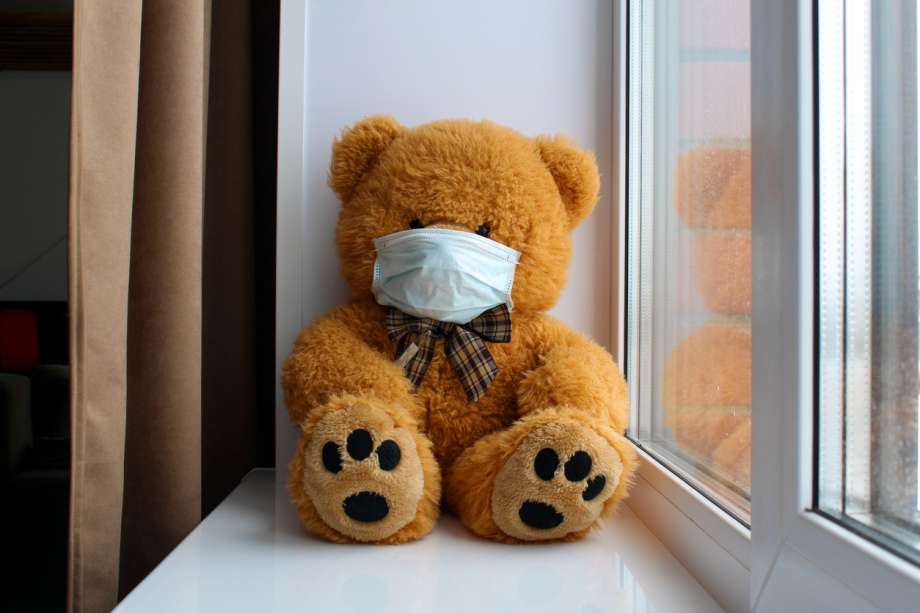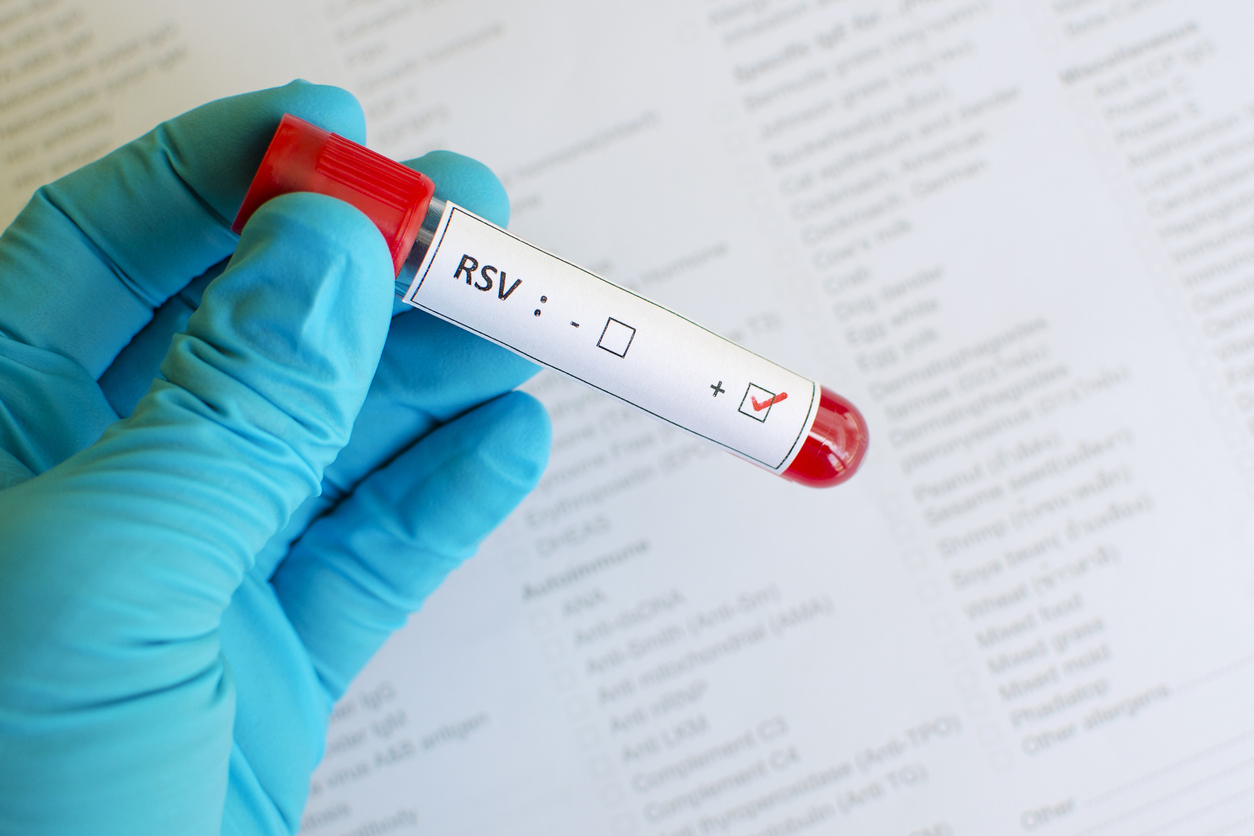Is RSV a Coronavirus? Your Questions Answered

You may have heard the word ‘tripledemic’ with regard to the triple winter threat of COVID-19, flu, and Respiratory Syncytial Virus (RSV). COVID-19 and influenza are familiar to most of us. But what is RSV? Who does it affect? And, most importantly, how should we be preparing?
What Is RSV

RSV stands for Respiratory Syncytial Virus. It’s a common respiratory illness like cold and flu, and, like cold and flu, RSV infections tend to spike in the winter.
For most people, it’s not very serious at all. However, it can cause severe illness in some groups, including infants and the elderly. In fact, According to the CDC, RSV is a primary cause of bronchiolitis (inflammation of the small airways in the lung) and pneumonia (infection of the lungs) in children under one year of age.
It’s estimated that RSV causes between 100 and 500 pediatric deaths each year, and around 14,000 adult deaths.
Why Are We Hearing About RSV Now?
RSV isn’t new. However, the New York Times reports that this year the virus’s spike is coming early, with larger numbers of severe cases. In some places, pediatric units are becoming overwhelmed.
Why are there so many cases?
Some doctors believe that the lockdowns and social distancing measures many of us undertook to protect ourselves from COVID-19 insulated us from exposure to RSV.
Exposure helps people to develop immunity. It’s estimated that before the COVID-19 pandemic, almost every child was exposed to RSV before age two. Repeated exposure strengthens immunity.
The problem is that much fewer people were exposed to RSV and other viruses during the COVID-19 pandemic. This means that there are now greater numbers of immune-naive people. And this is translating into more cases than usual.
How Many Cases of RSV Have Been Reported in the U.S.?
Public health officials at the CDC report that RSV cases in the United States are at a two-year high, with physicians seeing more than twice as many cases per week.
If you’re looking for specific numbers, this CDC map of RSV detections can show you what’s going on in your area right now. You can also use the CDC data here to follow current trends in RSV infections.
Is RSV a Pandemic?

Do the outbreaks and large numbers of RSV infections constitute a pandemic like the COVID-19 pandemic?
Technically speaking, the term “pandemic” simply means “prevalent across a country or worldwide.” So, yes. Of course, by this definition, the flu is also a pandemic, as is the common cold.
Is RSV a Coronavirus?
No.
Coronaviruses are a large group of viruses that have spikes on their surface. “Corona” means “crown,” and this is what the name refers to. Many different coronaviruses, including COVID-19 and the rhinovirus, cause the common cold.
Does RSV Infect the Respiratory Tract?
Yes.
In milder cases, RSV infects the upper respiratory tract, that is, the nose and throat. In more severe cases, it can cause an infection of the lower respiratory tract — the trachea and lungs — as well.
What are the Symptoms of RSV?
RSV often includes cold-like symptoms, including
- Runny nose
- Congestion
- Coughing
- Sneezing
- Wheezing
- Fever
- Loss of appetite
- Irritability
- Decreased activity
Severe symptoms include breathing difficulties, a serious cough, and blue-tinged skin, which indicates oxygen deficiency.
How is RSV Transmitted?
RSV is transmitted in similar ways to the cold and flu. It is transmitted through or by
- Virus droplets from the cough or sneeze of an infected person
- Direct contact with the virus, such as through a kiss
- Touching infected surfaces and then touching your face
The virus can survive for several hours on hard surfaces, and for slightly less time on soft surfaces.
What is the Incubation Period for RSV?
People infected with RSV may be contagious for one to two days before they start showing symptoms. The infectious period typically lasts three to eight days. Some people may continue to spread the virus even after their symptoms stop.
Are There Different Variants of RSV?
Yes. One study has found several different variants, which may differ in severity.
Who is Most at Risk from RSV?
The people who are at greatest risk of developing severe disease from RSV include
- Infants
- Young children
- Older adults (age 65+)
- People with chronic medical conditions
- Individuals with chronic heart or lung disease
- Adults with weakened immune systems
RSV can also worsen some conditions, such as asthma, COPD, and congestive heart failure.
Is There a Test for RSV?

There are two types of tests for RSV.
Rapid antigen tests examine the levels of virus found in nasal fluids. This is the most common test for infants and small children.
Molecular (PCR) tests are more common for older children and adults, who often have lower levels of the virus in their nasal fluids.
Generally speaking, doctors will only perform an RSV test if symptoms are severe.
Is There a RSV Vaccination?
The flu vaccine offers protection from the flu, and several COVID-19 vaccines can protect against the novel coronavirus. But what about an RSV vaccine?
Following a 1966 attempt at an RSV vaccine, which had disastrous results for the infants in the study, the idea of an RSV shot was shelved.
Recently, however, Pfizer has developed a vaccine for RSV which has shown very promising results in safety as well as efficacy. It hasn’t been approved by the FDA yet, but an RSV shot may one day become part of winter vaccinations like the flu shot.
How is RSV Treated?
Mild cases of RSV typically aren’t treated. However, premature infants and other people at high risk for severe disease from RSV may receive Palivizumab, a monoclonal antibody treatment sold under the brand name ‘Synagis’.
In addition, a new treatment, Beyfortus (Nirsevimab), has already been approved in Europe and could receive FDA approval soon. This treatment prevents lower respiratory tract infections in people with RSV.
Protecting Your Family
RSV can be quite serious for infants, older adults, and people with certain chronic health conditions. So, what’s the best way to protect the vulnerable members of your family?
These daily steps may sound familiar:
- Frequently wash your hands. Use soap and hot water, for at least 20 seconds.
- Cover your mouth and nose when you cough or sneeze.
- Wear a mask in crowded places. It can protect yourself and others from an airborne virus.
- Avoid close contact with others, including kissing, shaking hands, sharing utensils, and so forth.
- Frequently Clean touched surfaces like door handles and touchscreens.
- Don’t touch your face with unwashed hands.
- Small children and people with cold symptoms should avoid contact with people vulnerable to severe disease.
If your child is at risk for severe disease from RSV, you should consider limiting their time in daycare or other potentially contagious places. If you are concerned, speak to your child's daycare provider and pediatrician to determine a safety plan that looks after both the physical well-being of your child and ensures that their emotional and social development is not hindered.
What To Do If You Think Your Child May Have RSV
If you think your child may have RSV or any other illness, contact your pediatrician.
It’s unlikely that your healthcare provider will test for RSV or offer treatment unless symptoms are severe, or unless your child is at risk for severe disease.
Be aware of RSV and other respiratory infections. Take measures to protect the vulnerable people in your life.
But don’t panic! RSV is only one of many respiratory diseases we all normally encounter in wintertime. And common sense measures like hand washing and covering coughs and sneezes can go a long way toward protecting everyone.

